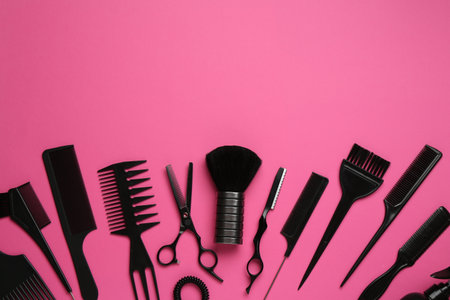1. Introduction to Artisan and Indie Aftershaves
In recent years, the UK has witnessed a noticeable shift in the world of men’s grooming, particularly with the rise of artisan and indie aftershaves. Once dominated by mainstream fragrance houses and mass-produced scents, British shelves are now being graced by a new generation of bespoke, small-batch aftershaves crafted by independent brands and passionate artisans. This growing interest signals a change in consumer priorities: men are increasingly drawn to unique formulations, local craftsmanship, and scents that offer a personal touch rather than generic blends from global giants. As more gents seek individuality in their grooming routines, artisan and indie aftershaves are fast becoming the go-to choice for those who value quality, character, and authenticity in every splash.
2. Cultural Context: Shaving Traditions in Britain
The history of shaving and aftershave rituals in Britain is deeply woven into the nation’s cultural fabric. From the refined gentry of Victorian England to the modern gentleman, grooming has long been a mark of respectability and self-care. Classic British barbershops, with their striped poles and leather chairs, have served as social hubs where men gather not only for a shave but also for conversation and camaraderie. This tradition has helped shape the enduring appeal of aftershaves, which were initially crafted to soothe post-shave skin, impart a fresh scent, and signal one’s attention to detail.
British grooming preferences are still heavily influenced by this heritage. The appreciation for quality, bespoke service, and time-honoured formulations remains strong among UK consumers today. Many modern artisan and indie aftershave brands draw direct inspiration from historical recipes or reinterpret traditional British scents—think sandalwood, cedar, or lavender—for a contemporary audience. The ritualistic nature of shaving, often handed down through generations, continues to resonate in British households.
Key Elements of Traditional British Shaving Rituals
| Element | Description | Modern Influence |
|---|---|---|
| Hot Towel Prep | Softens facial hair and opens pores before shaving | Still used in high-end barbershops; inspires home routines |
| Shaving Soap & Brush | Creates rich lather and exfoliates skin | Artisan brands recreate classic scents and textures |
| Straight Razor Technique | Skillful use of blade for close shave | Straight razors see revival among enthusiasts |
| Aftershave Application | Soothes skin, prevents irritation, adds fragrance | Indie aftershaves focus on natural ingredients and heritage blends |
The Heritage Factor in Contemporary Choices
This reverence for tradition doesn’t mean British consumers are stuck in the past; rather, they value products that blend authenticity with innovation. Today’s artisan and indie aftershaves often highlight their connection to British heritage through packaging, storytelling, or locally sourced botanicals. This blend of nostalgia and modernity is key to their growing popularity across the UK’s diverse grooming landscape.

3. Defining Artisan and Indie Aftershaves
When discussing the burgeoning world of artisan and indie aftershaves in the UK, it’s essential to clarify what truly sets these products apart from their mainstream counterparts. At the heart of this distinction lies a unique blend of carefully selected ingredients, small-batch production methods, and distinctive branding approaches that cater directly to the discerning British grooming enthusiast.
Ingredients: Quality Over Quantity
Unlike many conventional aftershaves found on supermarket shelves, artisan and indie brands pride themselves on using premium natural ingredients. You’ll often find plant-based extracts, essential oils, and botanicals sourced responsibly—think English lavender, sandalwood, or even locally foraged herbs. Synthetic additives, harsh chemicals, and artificial fragrances are typically shunned in favour of gentle, skin-loving formulas designed to soothe post-shave irritation and evoke authentic scents inspired by the British countryside.
Production Methods: The Small-Batch Advantage
One hallmark of artisan and indie aftershaves is the commitment to small-scale production. Rather than mass-manufacturing thousands of bottles at once, these makers often craft each batch by hand or with minimal automation. This meticulous approach allows for greater quality control, experimentation with new scent profiles, and the ability to tweak recipes based on direct customer feedback—a level of care rarely seen in larger commercial operations.
Branding: Personality and Provenance
The branding behind artisan and indie aftershaves is equally distinctive. While conventional brands rely heavily on celebrity endorsements or flashy marketing campaigns, independent makers emphasise personal stories, heritage, and local connections. Packaging is thoughtfully designed—sometimes featuring hand-labelled bottles or eco-friendly materials—and brand narratives often highlight transparency about sourcing or inspiration drawn from iconic British landscapes and traditions. This personal touch resonates with UK consumers seeking authenticity over mass appeal.
In Summary
In essence, what defines artisan and indie aftershaves is an unwavering dedication to quality ingredients, careful craftsmanship, and a storytelling approach that reflects both individuality and a deep connection to place—traits that are increasingly valued in the evolving landscape of British male grooming.
4. Key Drivers Behind the Trend
The surge in popularity of artisan and indie aftershaves across the UK isn’t a mere coincidence; it is fuelled by a combination of evolving consumer values and changing market dynamics. Let’s delve into the essential factors that are propelling this trend forward.
Natural Ingredients: A Return to Purity
Modern British consumers are increasingly conscious of what they apply to their skin. There’s a marked shift towards aftershaves crafted with natural, botanical ingredients, free from harsh chemicals or artificial additives. This move aligns with a broader health and wellness movement sweeping across the UK, as people seek products that are as close to nature as possible.
Ethical Production and Sustainability
Today’s shoppers place immense value on ethical sourcing and sustainable manufacturing processes. Artisan and indie brands often prioritise eco-friendly practices, such as using recyclable packaging, supporting cruelty-free testing, and partnering with local suppliers. These efforts resonate particularly well with environmentally-aware British buyers who want their grooming rituals to reflect their values.
Sustainability & Ethical Factors at a Glance
| Factor | Description | Typical Practices by Indie Brands |
|---|---|---|
| Natural Sourcing | Ingredients sourced from nature, avoiding synthetics | Use of essential oils, plant extracts, and organic bases |
| Cruelty-Free Testing | No animal testing in product development | PETA-certified, vegan-friendly offerings |
| Eco-Friendly Packaging | Minimising environmental impact through packaging choices | Recyclable glass bottles, minimal plastic use |
| Local Partnerships | Supporting nearby farmers and small-scale producers | Sourcing botanicals from UK growers and distilleries |
A Quest for Unique Scents and Personalisation
Bored with mass-market fragrances, British consumers now crave individuality in their scent profiles. Artisan aftershave makers offer an array of bespoke blends, often inspired by local landscapes or traditional British botanicals like lavender from Norfolk or Scottish heather. This attention to uniqueness allows wearers to express personal style while supporting homegrown talent.
The Bottom Line: A New Standard for Aftershave in the UK
The convergence of these key drivers—natural ingredients, ethical production, sustainability, and unique fragrances—has set a new benchmark for what aftershave means to the modern Briton. The artisan and indie movement not only caters to grooming needs but also reflects a broader cultural shift towards mindful consumption and individuality.
5. Popular UK Brands and Makers to Know
Britain’s artisan and indie aftershave scene is thriving, with a host of homegrown brands putting their own stamp on the fragrance landscape. These makers expertly blend traditional British elegance with bold creativity, resulting in aftershaves that are anything but ordinary. Here, we spotlight some standout brands that embody the UK’s unique approach to artisanal grooming.
Wickham Soap Co.
Hailing from Hampshire, Wickham Soap Co. has earned a devoted following for its refined scents and silky-smooth aftershave balms. Their “1912” range nods to classic British barbershop traditions while adding a contemporary twist—think clean, powdery finishes with subtle herbal undertones. Each product is hand-blended, ensuring quality and consistency in every bottle.
Phoenix and Beau
Based in Hitchin, Phoenix and Beau are celebrated for their bold fragrances and innovative formulas. Their aftershaves often feature complex scent profiles inspired by British heritage—like “Spitfire”, which conjures images of smoky leather armchairs and vintage tobacco shops. The brand’s small-batch ethos means every splash feels exclusive and thoughtfully crafted.
Barrister and Mann UK Collaborations
While Barrister and Mann originated in the US, their special UK collaborations deserve mention for bringing together international artistry with British sensibilities. Limited-edition releases often include quintessentially British notes such as Earl Grey tea, English lavender, or Highland whisky, making them a favourite among local enthusiasts looking for something distinct yet familiar.
Ariana & Evans (UK Edition)
This globally renowned artisan brand has released special UK editions that cater specifically to British tastes, blending traditional fougère accords with modern twists like rhubarb or blackcurrant. These limited runs are highly sought after by collectors who appreciate an international touch grounded in local flavour.
What Sets British Makers Apart?
The most notable UK artisan aftershaves distinguish themselves through locally sourced ingredients—such as English oakmoss or Cornish sea salt—and a commitment to ethical production. Sustainability is key: recyclable packaging, cruelty-free testing, and eco-conscious processes all play a part. Most importantly, these makers infuse each bottle with a sense of place; whether it’s evoking misty mornings on the moors or the bustle of a London street, British indie brands offer aftershaves that tell a story as unique as their wearers.
Impact on Consumer Behaviour and Retail
The burgeoning interest in artisan and indie aftershaves has significantly reshaped the buying habits of British men, marking a distinct shift from mass-market staples to more specialised grooming experiences. This trend signals a move towards products that offer individuality, craftsmanship, and a sense of discovery, echoing broader shifts in consumer culture across the UK.
The Shift to Niche Retailers and Online Boutiques
One of the most notable changes is the migration from traditional high street chains to niche retailers and curated online boutiques. British men are increasingly drawn to platforms that provide exclusive access to small-batch or limited-edition aftershaves. These outlets often prioritise storytelling, ingredient transparency, and a tailored shopping experience—values that resonate with those seeking authenticity in their grooming routines.
Redefining the Shopping Experience
Rather than simply picking up an aftershave during a supermarket run, consumers are now exploring specialist shops where knowledgeable staff can recommend scents based on personal preference and skin type. The rise of e-commerce also means that men can access a global range of artisan brands from the comfort of home, complete with detailed product descriptions, user reviews, and even virtual scent-matching tools.
Community Building Around Grooming
This movement has fostered thriving communities both online and offline. Forums, social media groups, and local meet-ups allow enthusiasts to share recommendations, review new releases, and discuss application techniques. Such spaces not only provide education but also reinforce the social aspect of grooming—transforming it from a solitary ritual into a shared cultural experience.
Overall, the rise of artisan and indie aftershaves is not just about product choice; it’s about embracing a lifestyle that values quality over quantity, personal connection over brand ubiquity, and community engagement over anonymous consumption. This evolution continues to redefine what it means to be well-groomed in modern Britain.
7. Outlook: The Future of Aftershave in the UK
Looking ahead, the UK’s aftershave landscape is set for further transformation as artisan and indie brands continue to captivate discerning consumers. While the current surge in popularity shows no sign of slowing, several factors will shape how this trend evolves in coming years.
Sustained Appeal of Local Craftsmanship
British buyers are increasingly drawn to authenticity and transparency, with many seeking products that reflect local heritage and craftsmanship. This preference is likely to persist, supporting small-scale producers who prioritise quality over quantity. Indie aftershave makers who tell compelling brand stories and highlight their British roots are poised to maintain a loyal following.
Challenges on the Horizon
However, the path ahead is not without obstacles. Regulatory requirements around cosmetics and fragrances may present hurdles for independent makers, especially as demand grows and they look to scale up production. Sourcing unique ingredients can also become trickier as competition intensifies and sustainability remains top-of-mind for eco-conscious consumers.
Innovation Meets Tradition
To stay relevant, artisan brands must strike a balance between innovation and traditional values. Expect to see more experimentation with scent profiles—think unexpected botanicals or locally foraged ingredients—alongside classic British notes such as lavender or oakmoss. Packaging is also set to become even more eco-friendly, responding to environmental concerns without compromising on style.
The Role of Community and Education
As social media continues to shape consumer choices, education around proper aftershave use and appreciation will further elevate the category. Artisans engaging with customers through tutorials, workshops, or online content can foster a sense of community, making the buying experience both informative and personal—much like the best beauty masterclasses.
Final Thoughts
The future of aftershave in the UK is one of creativity, connection, and conscious consumption. While challenges remain for indie producers, their commitment to quality and individuality ensures that locally crafted scents will remain a fixture on British bathroom shelves for years to come.


